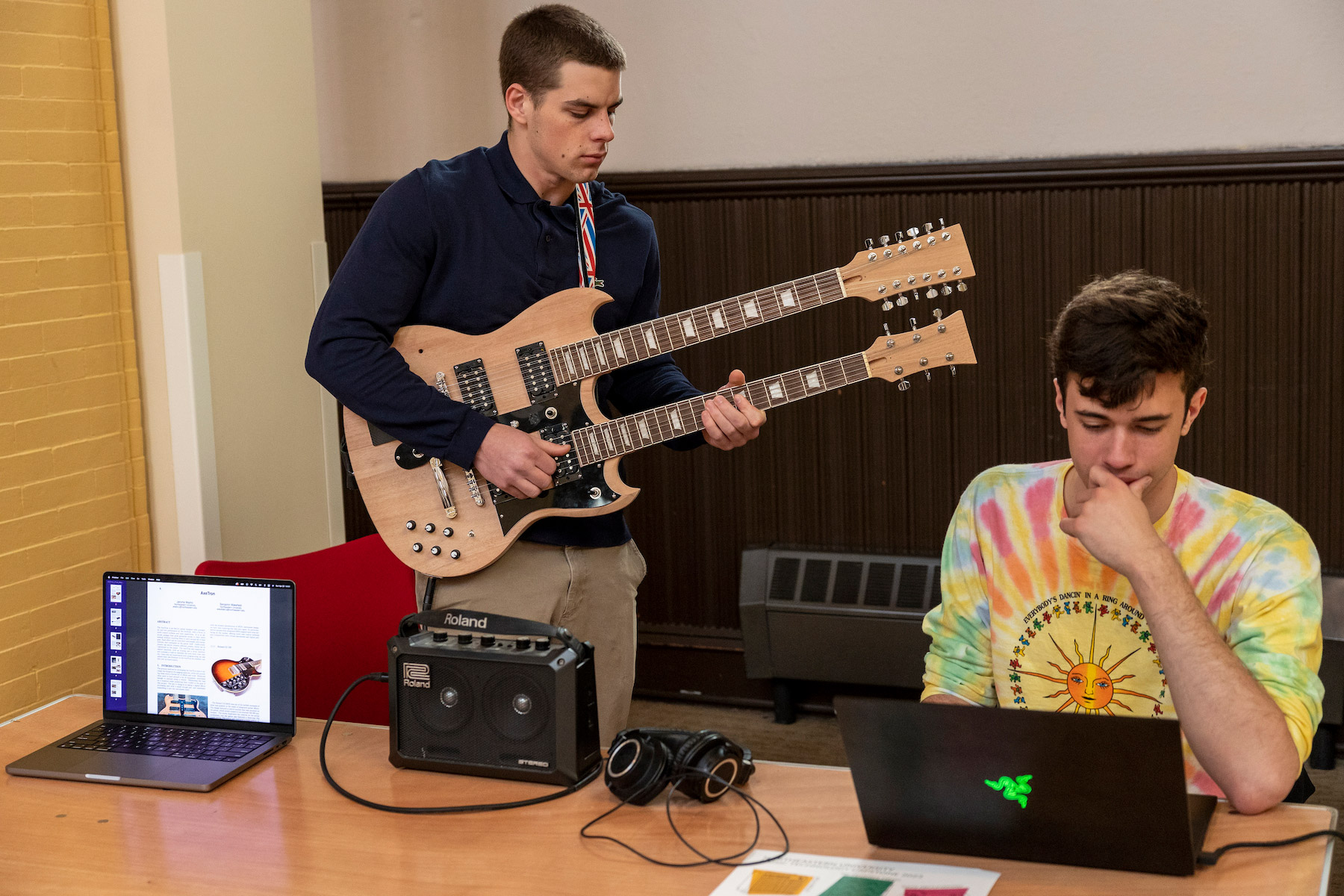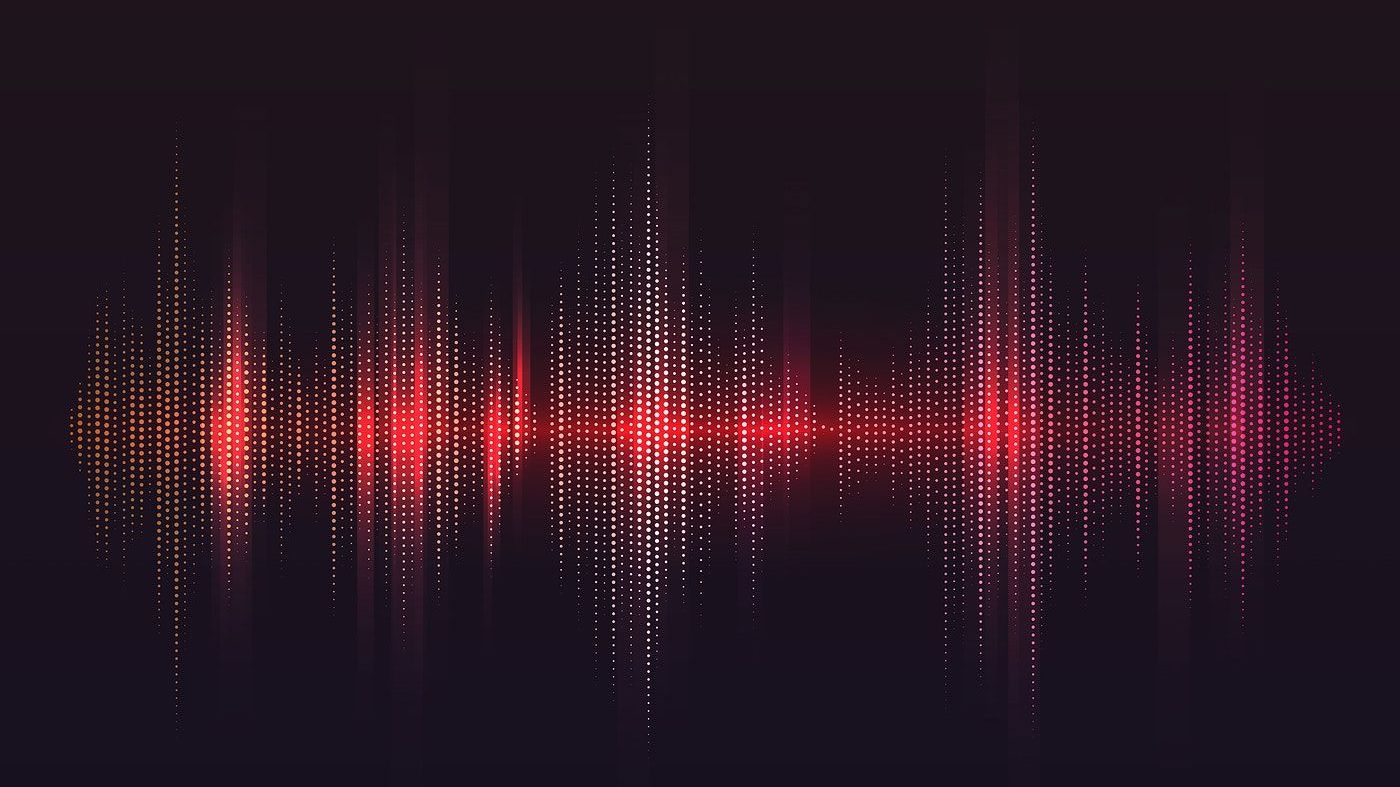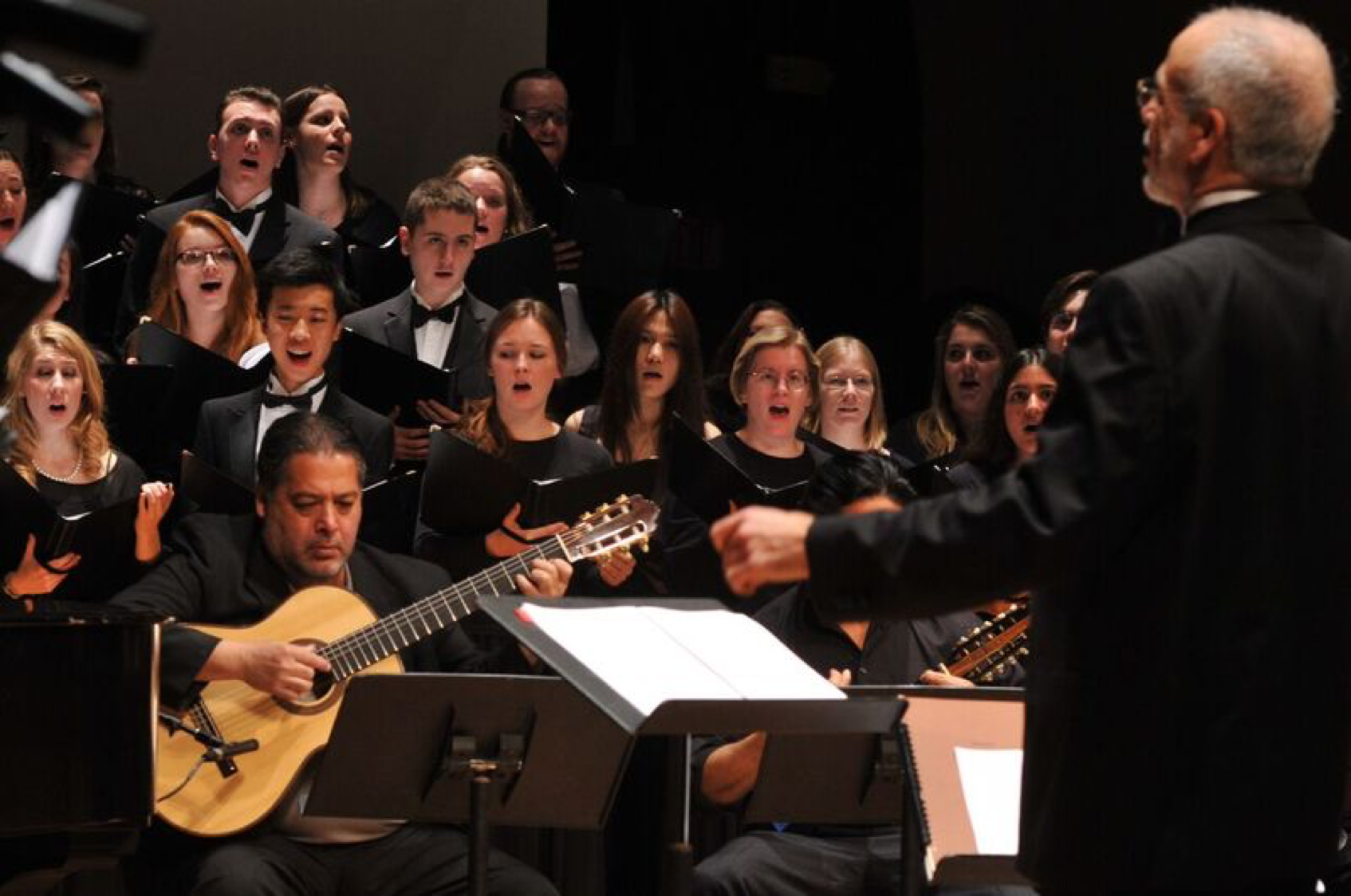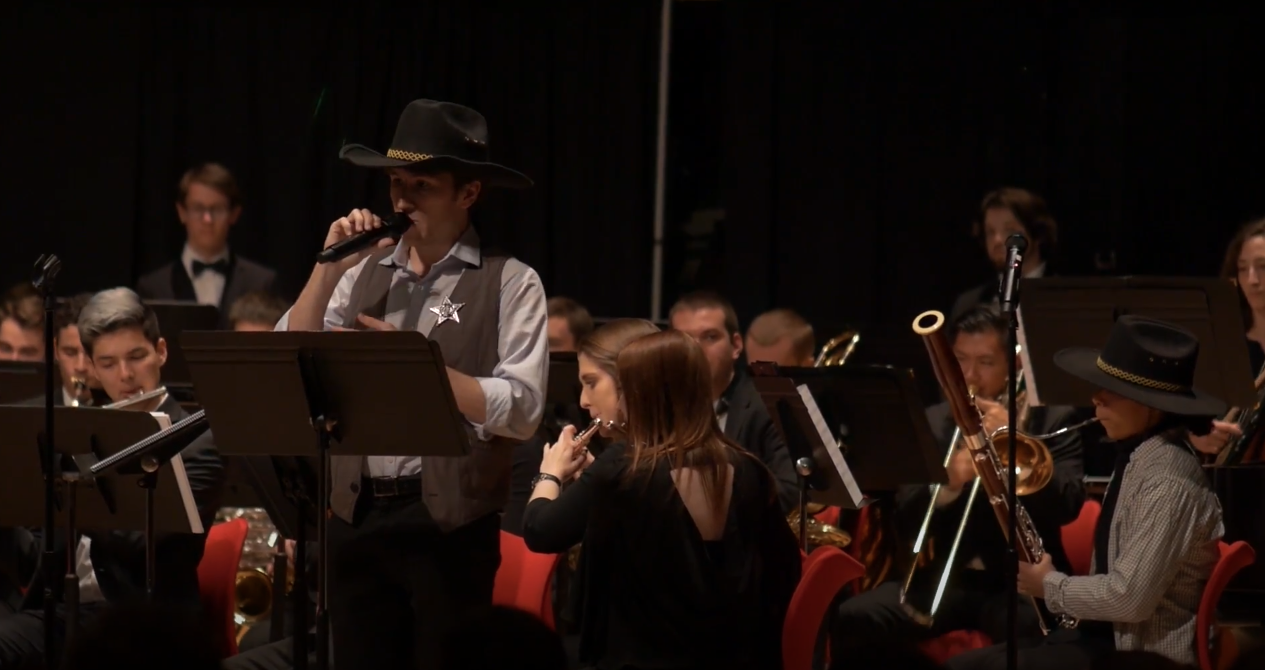An emphasis is maintained throughout on imaginative exploration, collaboration across disciplines, and real-world experience.
Program Learning Outcomes
Students graduating with a Bachelor of Science in Music with concentration in Music Technology are expected to have acquired the following competencies:
Music Theory Skills
- The ability to recognize, analyze and compose music rooted in functional tonality, including proper voice leading, key modulations, common progressions and harmonization and an idiomatic facility with harmony, melody, rhythm, form and orchestration.
- The ability to recognize, analyze and compose music in the style of 20th- and 21st-century repertoire that utilizes and/or integrates established techniques including polytonality, free atonality, serialism, spectralism, minimalism, algorithmic and generative processes, aleatory/ indeterminacy, jazz harmony and rhythm, and influences from global folk and popular sources.
- The ability to recognize, articulate and explore compositionally the advantages and disadvantages of common alternatives to the twelve-tone equal temperament system.
Musicianship Skills
- The ability to hear, identify, and work conceptually with the elements of music, including intervals, scales, chords, meters, rhythm, melody, harmony, modulations and structure.
- The ability to read music fluently in four clefs (treble, bass, alto and tenor).
- Basic piano proficiency.
History and Literature Skills
- Engage in-depth discussion of the important historical periods in music history from the Baroque Era to the present day.
- Engage in detailed discussion of established aesthetics and movements in contemporary Western classical music in general and electroacoustic music in particular.
- Demonstrate familiarity with compositional processes, aesthetic properties of style, and the ways these shape and are shaped by artistic, cultural, societal and political forces.
- Demonstrate an acquaintance with the musical practices from reflecting genres, cultures and ethnicities beyond the European/North American “classical” canon.
Composition Skills
- The ability to compose original music in both small forms and larger forms employing solo instruments or small ensembles.
- An ability to notate music effectively, employing both standard and extended notational strategies and performance techniques.
- The ability to compose in the electronic domain, including works that integrate electronics with live performance.
- The ability to compose works that utilize and demonstrate facility with interactive computer technologies.
- A thorough understanding of all of the instruments in the traditional Western orchestra and jazz band, with a demonstrated ability to orchestrate music using those instruments.
Sound Production Skills
- The ability to sample and modify sounds using established signal processing routines while demonstrating a solid working knowledge of their associated parameters.
- The ability to generate and deliberately design sounds using established synthesis techniques.
- The ability to record, produce, mix and master high-quality works effectively in the electronic domain.
Research Skills
- The ability to conduct and present high-quality academic research in the field of music, both in written form and orally.
Professional Skills
- The ability to organize music events, including programming, scheduling rehearsals and sound checks, hiring performers, working with musician’s unions, and managing technical requirements.
Co-op Opportunities
- Live Nation
- Nettwerk
- Jamspot
- mtheory
- Superfly
Career Opportunities
- Artist manager
- Record label
- Music publisher
- Promoter
- Booking agent
- Social media
Multidisciplinary Skills
- DAW
- Recording
- Ableton
- Protools
- Logic
- Music production
- Recording studio
- Social media





